In today's fast-paced world, where convenience often takes precedence over quality, the art of cooking seems to be fading away. With hectic schedules and ready-to-eat meals readily available, many children are growing up without experiencing the joys of preparing a delicious home-cooked meal. However, there is a growing movement that emphasizes the importance of teaching young ones to cook, not just as a survival skill but as a source of immense joy and numerous benefits.
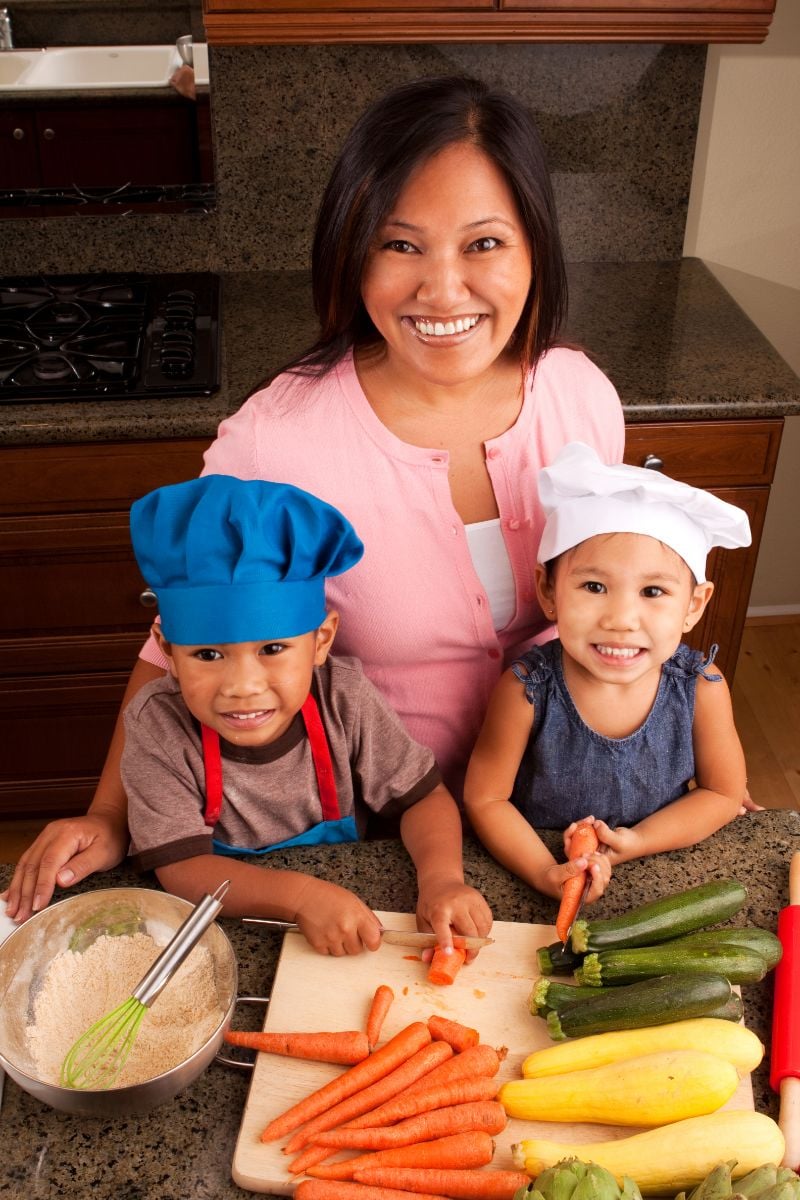
Cooking is a fundamental life skill that equips individuals with the ability to nourish themselves and others. When we expose children to the wonders of the kitchen from an early age, we open a world of opportunities for them to explore their creativity, build confidence, and develop important life skills that will stay with them forever.
The joy and benefits of teaching young ones to cook.
In this blog post, we will delve into the joy and benefits of teaching young ones to cook. We will explore how involving children in the kitchen can ignite their curiosity, foster healthy eating habits, promote family bonding, enhance cognitive development, and empower them to make informed choices about their nutrition. So, grab your aprons, gather around the kitchen counter, and let's discover the magical world of cooking with kids.
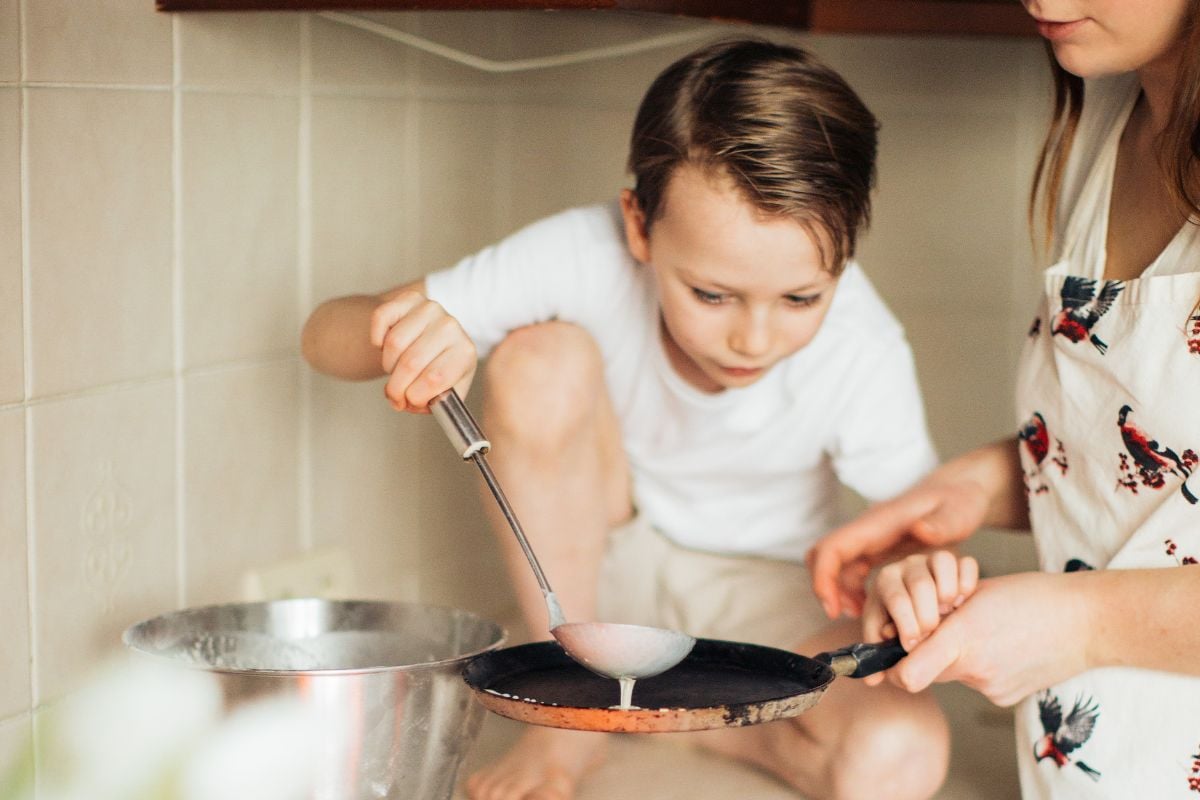
Cooking with children can be a challenging yet rewarding experience.
Cooking with children can be a challenging yet rewarding experience. Not only are you teaching them a life skill, but you're also spending quality time together and creating delicious meals. As you begin your cooking lessons, it's important to keep in mind the recipe and make sure to explain every step in simple terms. Encourage your kids to get involved by measuring out ingredients and mixing them together. Once you've finished, show them how to store the food properly. With a little patience and creativity, you can make cooking with your children a successful experience that they will cherish for a lifetime.
Some of the personal Perks, of teaching kids to cook.
By teaching your kids to cook, you equip them with a valuable set of skills and knowledge that extend far beyond the kitchen, setting them up for a more independent, healthy, and fulfilling future.
1 Independence and self-sufficiency: Teaching kids to cook empowers them to become self-sufficient and independent individuals. They learn valuable life skills that will serve them well throughout their lives. They won't have to rely solely on pre-packaged or takeout meals and can prepare their own nutritious meals.
2 Healthy eating habits: When children know how to cook, they have a better understanding of what goes into their meals. They can make healthier choices by selecting fresh ingredients and avoiding processed foods. Cooking also encourages them to try new foods and experiment with different flavors, leading to a more varied and balanced diet.
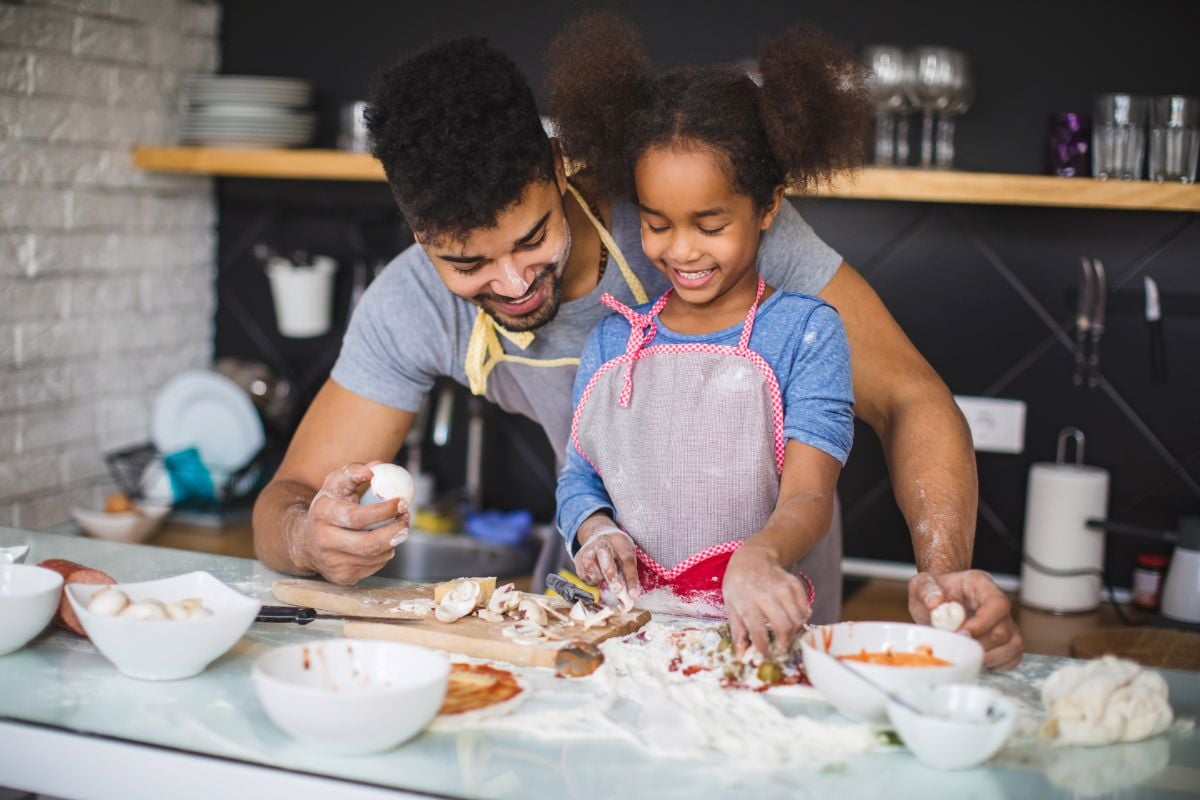
3 Bonding and family time: Cooking together provides an excellent opportunity for bonding and creating lasting memories with your children. It's a chance to engage in meaningful conversations, share stories, and work as a team. Collaborating in the kitchen can strengthen family relationships and foster a sense of togetherness.
4 Practical math and science skills: Cooking involves practical applications of math and science concepts. Kids can learn about measurements, fractions, conversions, and temperature while following recipes. They can observe chemical reactions, practice problem-solving, and develop their critical thinking abilities through cooking experiments.
5 Creativity and self-expression: Cooking allows children to express their creativity and individuality. They can experiment with ingredients, flavors, and presentation, developing their own unique recipes. Encouraging their creativity in the kitchen boosts their confidence and nurtures their sense of accomplishment.
6 Cultural appreciation: Exploring different cuisines with your children introduces them to diverse cultures and traditions. They can learn about the foods and culinary practices of various regions, promoting cultural awareness and appreciation. It broadens their horizons and helps them develop respect for different ways of life.
7 Practical life skills: Cooking encompasses numerous practical life skills beyond preparing meals, such as meal planning, grocery shopping, budgeting, and time management. These skills are essential for everyday life and contribute to your child's overall development and preparedness for the future.
8 Confidence and responsibility: As children learn to cook and successfully create meals, they gain confidence in their abilities. They become more responsible by handling tasks such as following recipes, using kitchen tools safely, and cleaning up after themselves. This sense of responsibility carries over to other aspects of their lives.
9 Career prospects and entrepreneurship: Cooking skills acquired at a young age can potentially lead to future career opportunities. Whether it's pursuing a culinary profession, starting a food-related business, or simply working part-time in a restaurant, a foundation in cooking can open doors for their future endeavors.
10 Practical problem-solving: Cooking often presents unexpected challenges or requires improvisation. Teaching kids to adapt to changing situations and solve problems in the kitchen helps them develop resilience and resourcefulness. They learn to think on their feet, make decisions, and find creative solutions to culinary dilemmas.
By teaching your kids to cook, you equip them with a valuable set of skills and knowledge that extend far beyond the kitchen, setting them up for a more independent, healthy, and fulfilling future.

Ensure your cooking sessions are Succesful
To ensure successful cooking sessions with children, consider the following key steps:
- Plan age-appropriate recipes: Choose recipes that are suitable for the age and skill level of the children involved. Start with simple dishes and gradually introduce more complex recipes as they gain experience.
- Set up a safe environment: Ensure the cooking area is clean and organized, and that all necessary tools and ingredients are within reach. Make sure the workspace is safe for children, with appropriate utensils, and consider using step stools to help them reach countertops comfortably.
- Explain and demonstrate: Before starting, explain the recipe and cooking process to the children. Show them the necessary steps and techniques through demonstration, emphasizing safety precautions and proper handling of tools and ingredients.
- Involve children in the preparation: Encourage children to participate actively in the cooking process. Assign them age-appropriate tasks such as measuring ingredients, stirring, mixing, or decorating. Let them experience the different stages of cooking to develop a sense of accomplishment.
- Teach kitchen safety: Emphasize the importance of kitchen safety rules. Teach children about handwashing, proper food handling, and safe stove and oven usage. Demonstrate how to handle sharp objects, such as knives, with care, and ensure they understand the risks involved.
- Encourage creativity: Allow children to add their own personal touches to the recipe. Let them choose variations or decorations that can make the dish more unique and enjoyable for them. This fosters their creativity and helps them feel a sense of ownership over the food they prepare.
- Foster teamwork and communication: Encourage children to work together and communicate effectively during the cooking session. Teach them to listen to others' ideas, cooperate, and share tasks. This helps develop their social skills and creates a positive and collaborative cooking environment.
- Emphasize kitchen cleanliness: Teach children about the importance of cleanliness in the kitchen. Show them how to clean as they go, wiping surfaces, washing utensils, and keeping the workspace tidy. This instills good hygiene habits and teaches them the responsibility of maintaining a clean cooking environment.
- Taste and enjoy the results: Once the dish is ready, encourage everyone to taste and enjoy the fruits of their labor. Celebrate their efforts and discuss what they've learned during the cooking process. This helps them appreciate their work and encourages a love for cooking and trying new foods.
Safety, confidence, creativity, and Life skills
Remember, adult supervision is essential throughout the cooking session to ensure safety and offer guidance. Cooking with children is not only about the end result but also about fostering their creativity, confidence, and life skills.
This was inspired by my other recipe on this site, and pairs well with this amazing sidedish recipe.
Jump to:
Related
Looking for other recipes like this? Try these:
Pairing
These are my favorite dishes to serve with [this recipe]:
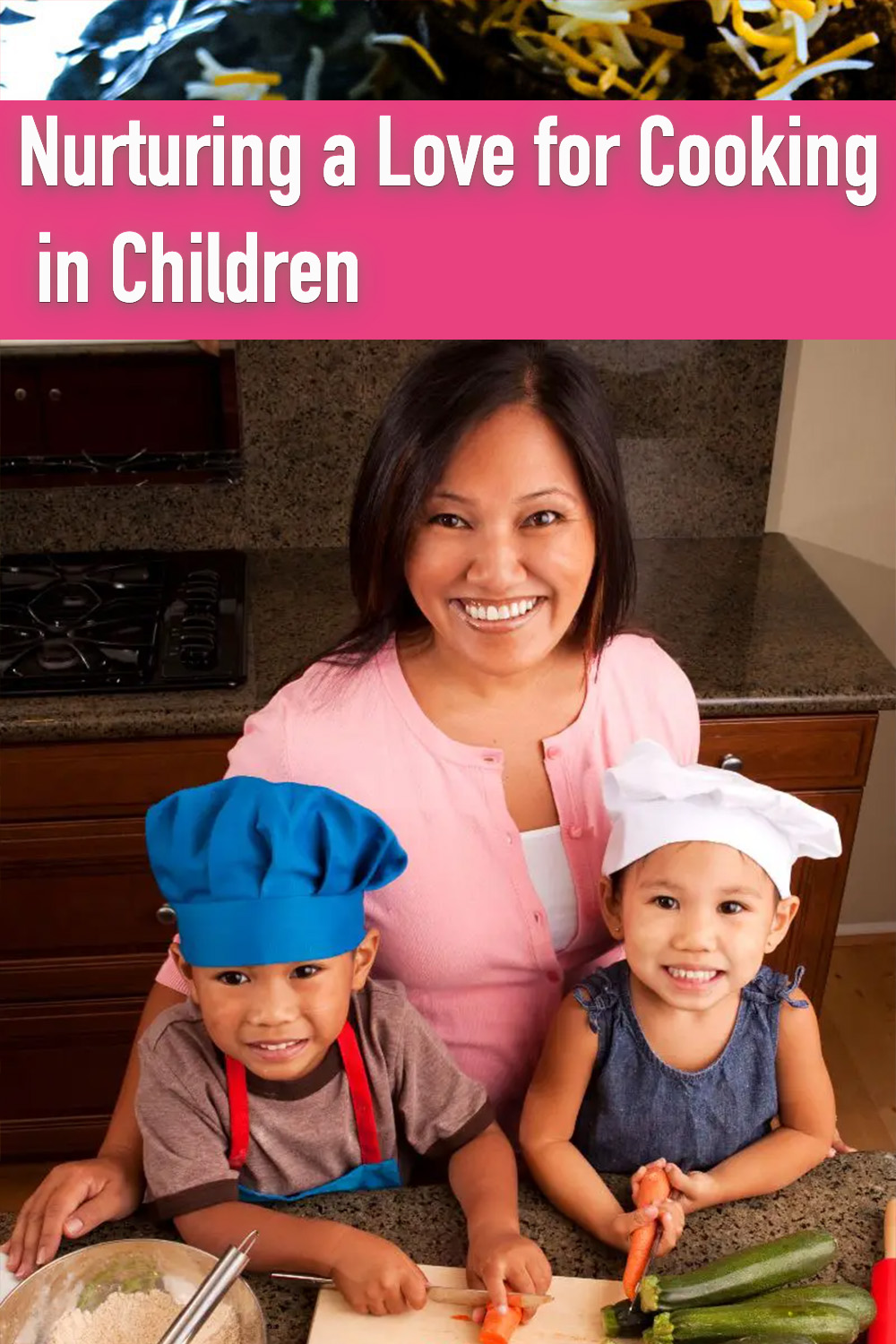




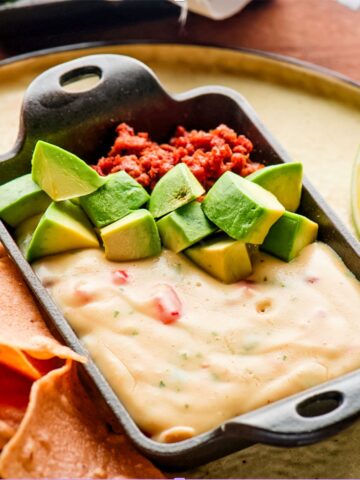



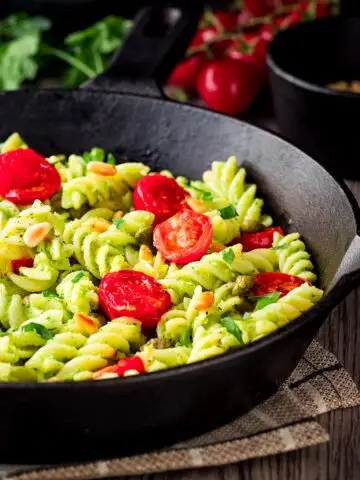

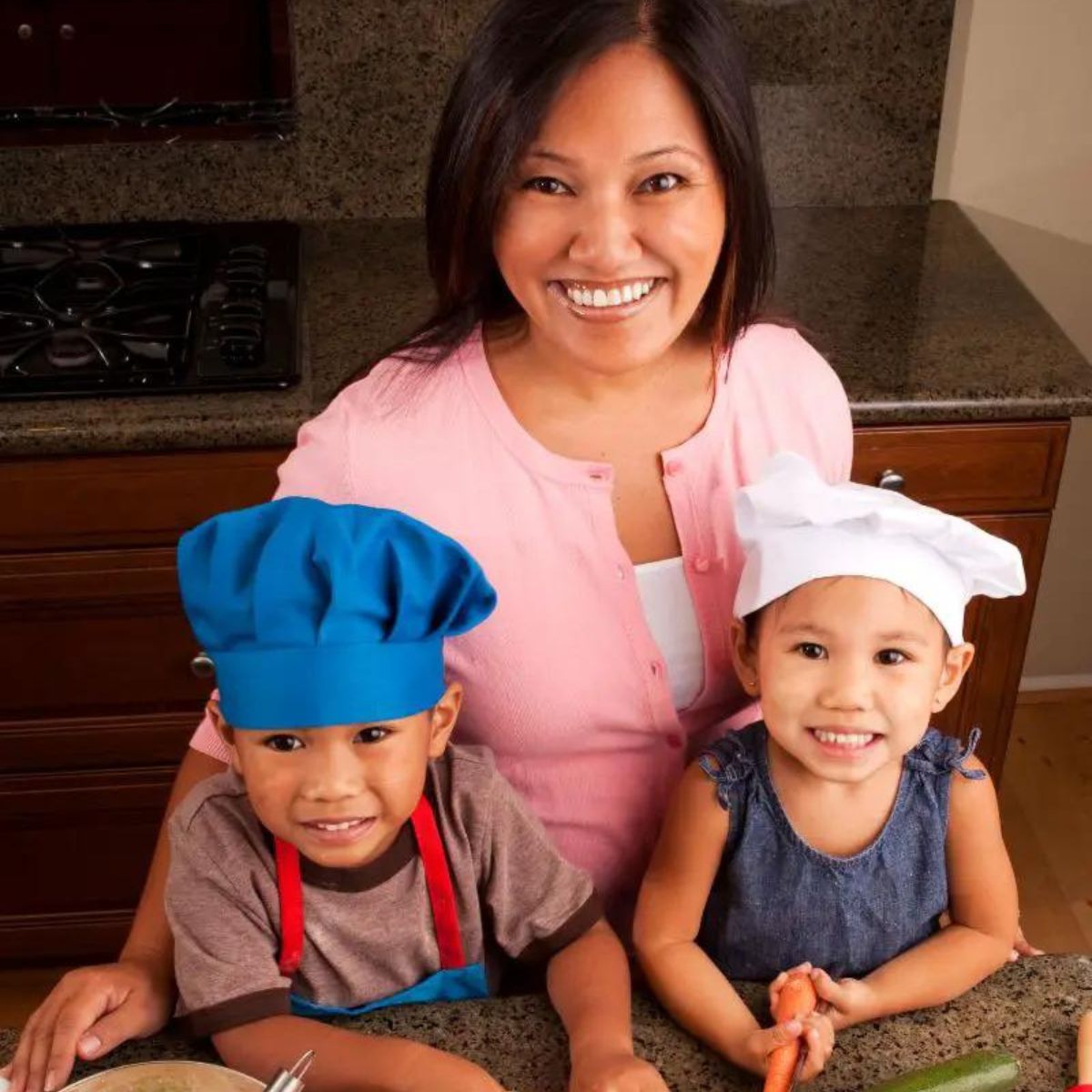




Leave a Reply
You must be logged in to post a comment.